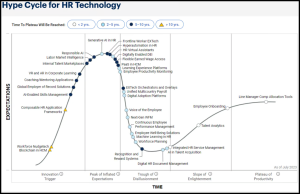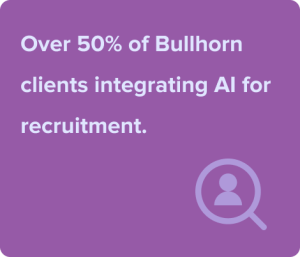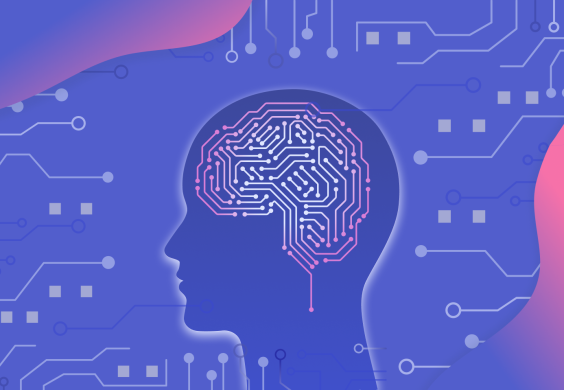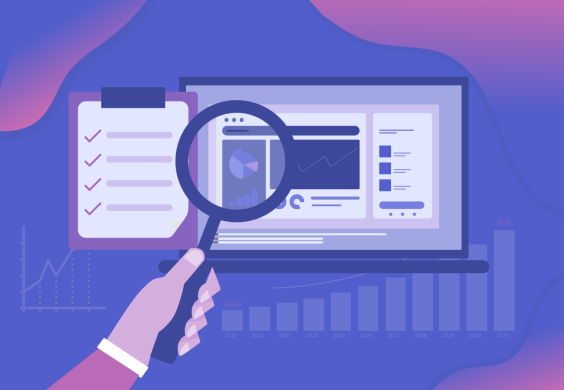In a rapidly evolving business landscape, Artificial Intelligence (AI) is a game-changer, especially in recruitment and HR sectors. This article delves into the preparation necessary for businesses to adopt AI effectively, focusing particularly on recruitment and HR-related aspects. However, the insights offered are broadly applicable across various business domains, including HR departments and staff recruiters in any industry. We’ll explore the key steps, from understanding AI’s potential to implementing strategic data management and automation, essential for harnessing AI’s power in enhancing business operations.
3 Game-Changing Categories of AI Applications in HR
Let’s categorize it into three distinct types:
- Generative AI: Enhances interaction with candidates and clients through personalized messaging and information exchange.
- Sourcing/Recruitment AI: Boosts headhunting by pinpointing appropriate talent from internal and external sources.
- Directive (Decision-Support) AI: Guides recruiters by advising actions, highlighting potential issues and bottlenecks, etc.
Unlocking the Advantages of AI in Recruitment
AI’s integration in HR technology offers multifaceted benefits:
- Personalized Interactions: AI-driven personalized communication enhances the candidate and client experience.
- Efficiency Uplift: By automating tasks like resume screening and interview scheduling, recruiters can focus on strategic elements.
- Enhanced Decision-Making Advising: AI’s ability to analyze vast data sets uncovers patterns and trends, aiding in informed decision-making.
Addressing the Current State of AI in HR
Recent findings from a Gartner report indicate a gap in the adoption of AI within HR technology. Many HR leaders recognize a misalignment between their HR Tech solutions and the evolving business needs, including digital transformation. The uncertainty about the impact of emerging technologies like generative AI further complicates this landscape.
Prevalent Challenges Confronted by HR Executives:
- A significant 56% of HR executives acknowledge a misalignment between their existing HR technology approaches and the evolving demands of their business, including aspects like digital transformation.
- Additionally, 60% express uncertainty regarding the influence of emerging technological trends

Source: Gartner
Framework for Effective AI Adoption in HR and HRTech
Adopting AI in HR requires a balanced approach, considering 4 core points of interest:
- Governance: Determining ownership, management, and intervention points for the technology.
- Workforce Readiness: Evaluating the influence on existing and upcoming work methodologies, competencies, and responsibilities.
- Risks and Ethics: Evaluating and mitigating associated risks and ethical concerns.
- Vendor Landscape: Analyzing the market to decide between building solutions in-house or awaiting market maturity.
AI’s Transformative Impact in Recruitment

According to a Bullhorn survey, over half of its clients are integrating generative universal AI, with more planning to integrate AI-driven products or platforms shortly. Additionally, 38% are employing AI to boost the candidate experience.
Therefore, the imperative for recruitment companies (or departments) is clear: Adopting AI is essential to boost efficiency and unlock additional value from current data.
For you to harness AI’s maximum potential, mere access to technology isn’t sufficient. To achieve effective AI adoption, organizations should synchronize their workflows and frameworks, departments, and key strategies. This meticulous preparation is imperative to guarantee a seamless transition and sustained success within the AI-driven recruitment domain.
14 Key Steps for Effective AI Adoption
- Educate Yourself on AI: Boost your AI knowledge, its functionalities, and potential applications in your sector.
- Pinpoint Business Challenges: Identify where AI can address specific issues and enhance value in your organization.
- Experiment with AI: It helps to understand their capabilities and influence on recruitment processes.
- Align AI with Your Strategic Goals: Set clear AI adoption objectives that correspond with your key targets.
- Start Small, Think Big: Initiate AI integration with small projects, then expand based on these experiences.
- Secure Leadership Support: Gain the backing of top executives for effective AI adoption.
- Cultivate AI Literacy: Train your workforce on AI benefits and necessary skills.
- Implement AI Security Policies: Develop robust normative policy fundament for AI usage, focusing on compliance and ethical standards.
- AI Ethics and Responsibility: Formulate an AI ethics framework to promote responsible use.
- Data Integration and Administration: Streamline and consolidate your data, forming teams to oversee data throughout different departments. Explore cloud-based ATS+CRM systems to ensure a cohesive approach to data unification.
- Embrace Automation: Use to synchronize data management, setting the stage for AI.
- Monitor and Improve: Consistently assess AI initiatives and adjust strategies based on pilot project insights.
- Allocate Resources to Appropriate AI and Recruitment Software: Select AI technologies and seek advice from specialists to guarantee they align with your business requirements and sector specifics.
- Opt for Knowledgeable AI Collaborators and Firm Partners: Collaborate with AI vendors who are proficient in adhering to regulatory standards and maintaining data integrity.
Leveraging AI in Recruitment: Practical Applications
- Advanced Candidate Interaction: AI refines the process of generating personalized and effective communications, thereby increasing engagement and fostering enduring relationships with candidates.
- Quick Summarization of Candidate Data: AI-powered tools facilitate rapid and precise analysis of candidate information, streamlining profile assessments.
- Enhanced Client Correspondence: AI assists in crafting tailored and meaningful communications, thereby heightening client involvement and satisfaction.
- Effective Candidate-to-Job Alignment: AI plays a crucial role in matching candidate abilities with job prerequisites, thus hastening the recruitment process.
- Efficient Resume Enhancement: AI expedites the process of resume and cover letter editing, improving the overall presentation of candidate profiles.
Conclusion
Successfully adapting AI requires more than just technological integration; it involves a strategic approach towards data management, security, and collaboration. This article outlines a comprehensive pathway for businesses to prepare for AI adoption, ensuring they are well-equipped to leverage AI’s potential in boosting efficiency and decision-making. As we move forward, AI is not just an option, but essential for being competitive and innovative in the dynamic business landscape.


